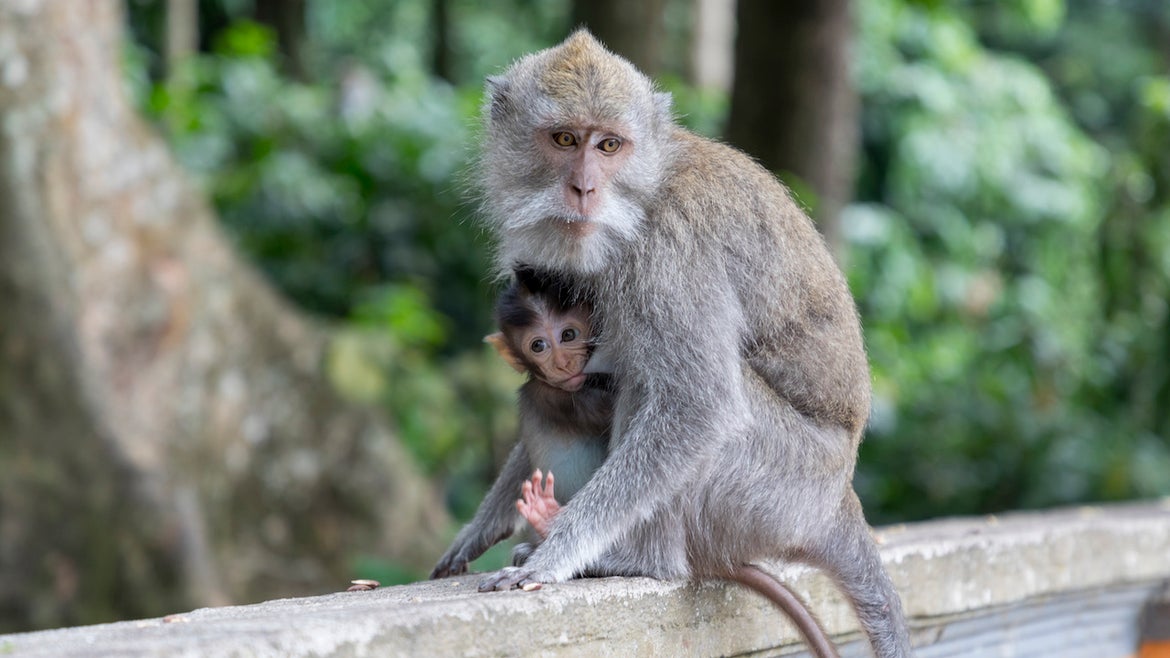Tourism is the main source of income in the Bali region. Before the coronavirus outbreak, they averaged five million visitors a year. Without tourists, the monkeys suffer.
Many aspects of everyday life have been affected by the current COVID-19 pandemic. Including the food supply for monkeys in Bali.
Indonesian monkeys rely on tourists and visitors to maintain their food source. Since the pandemic is keeping people away, the monkeys are getting creative.
They have begun raiding homes in nearby village Sangeh, in hopes of finding the bananas, peanuts, and other goodies they are used to tourists sneaking, AP News reports.
“We are afraid that the hungry monkeys will turn wild and vicious,” one villager, Saskara Gustu Alit, said. So they, along with several other residents, have begun taking food to the Sangeh Monkey Forest to try to keep them away from their homes.
Tourism is the main source of income in the Bali region, AP adds. Before the coronavirus outbreak, they averaged five million visitors a year.
Now, since Indonesia banned foreign travelers, the monkeys are missing out on international visitors' treats.
“This prolonged pandemic is beyond our expectations,” sanctuary manager Made Mohon said. Because they are losing out on admission fees at the property, they are running low on money to provide for the primates. “Food for monkeys has become a problem.”
They add that food typically costs 850,000 rupiahs or $60 a day to keep the monkeys fed.
Luckily, villagers have stepped up to help. But they can only offer so much as they are also dealing with less income.
Alit says not only are the monkeys hungry, but they are bored. So they are encouraging villagers to try to interact with the monkeys as much as possible.
“That’s why I have urged villagers here to come to the forest to play with the monkeys and offer them food,” he points out. “I think they need to interact with humans as often as possible so that they do not go wild.”






